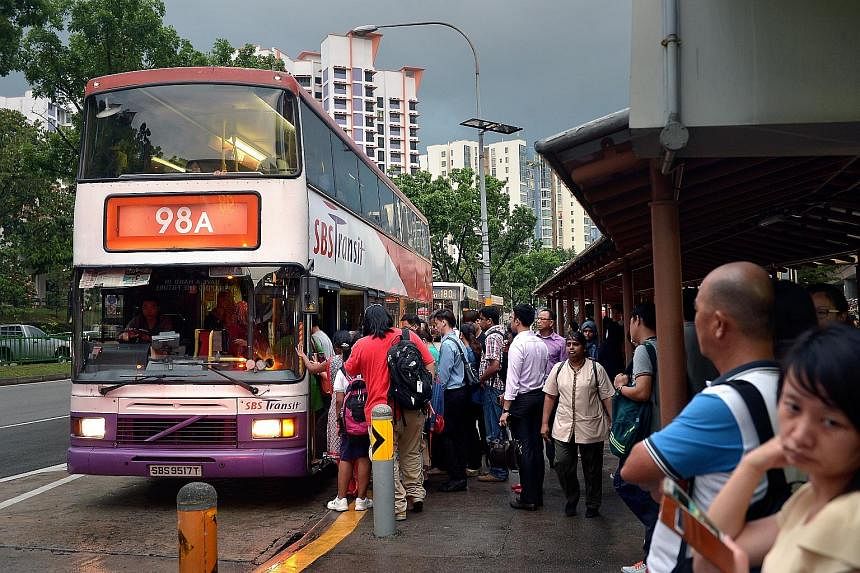THE negative inflation Singapore has experienced for much of the year has been attributed mainly to cheaper oil, but the under-performing economy has played a part as well, according to DBS economist Irvin Seah.
Mr Seah said in a research note that these factors could also send "core" inflation - seen as a better gauge of out-of-pocket expenses for households - into negative territory on the back of slow growth,
This, in turn, may prompt the Monetary Authority of Singapore (MAS) to ease the rise of the Singapore dollar at its next policy meeting in October, he added. The central bank uses the exchange rate as its main tool to strike a balance between controlling inflation from overseas and laying the foundations for economic growth.
Singapore's headline inflation contracted for the sixth consecutive month in April, coming in at negative 0.5 per cent, following a 0.3 per cent decline in March.
The main drivers of negative inflation over the past months have been housing, transport and healthcare, which together account for 47 per cent of the overall consumer price index used to measure inflation, Mr Seah noted in the report released last week.
"These sectors, in turn, are being driven by low oil prices, significantly slower-than-expected wage growth, a cooling property market and a moderation in healthcare costs owing to the Pioneer Generation Package."
Barring any significant uptick in oil prices, inflation will likely remain negative for several more months and is likely to come in at negative 0.1 per cent for the full year, he added. The MAS expects headline inflation to come in at between negative 0.5 per cent and 0.5 per cent this year.
Core inflation - which strips out accommodation and private road transport costs to better gauge everyday expenses - tends to be less volatile and remains positive, Mr Seah said.
However, it has also been declining. In April, it came in at just 0.4 per cent, down from an already low 1 per cent in the previous month. This was the lowest reading since March 2010.
Flagging economic growth appears to be the main reason, Mr Seah said, citing slowing growth in consumer and business loans as a sign that economic activity has been softening.
The central bank expects core inflation to fall between 0.5 and 1.5 per cent for the full year. Should it dip below zero and stay there in the coming months, full-year core inflation would fall short of its target range, Mr Seah noted. This might prompt it to ease the Singapore dollar's rise when it next meets in October. "The risk of negative core inflation is rising and it could prompt deflationary concerns," he said.
The ongoing manpower shortage and low unemployment should put a floor under core inflation - but the labour market has been tight for some time and inflation continues to ease.
Other economists say inflation will come in within the central bank's forecasts, which means it is unlikely to act in October. A United Overseas Bank report last Friday noted that lower core inflation was a result of reduced healthcare costs from the Pioneer Generation scheme and cheaper fuel compared with a year ago.
"We still think that core inflation will fall nicely within the central bank's forecast... and that there should likely be policy inaction in October," the report said.


